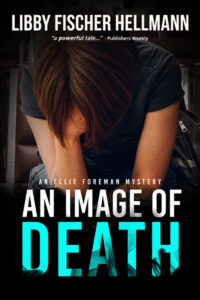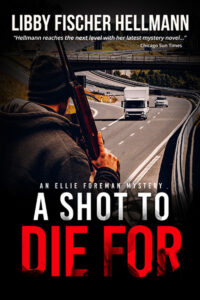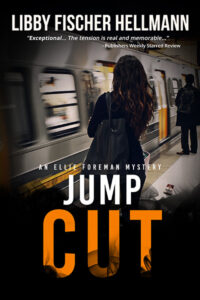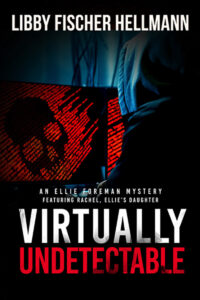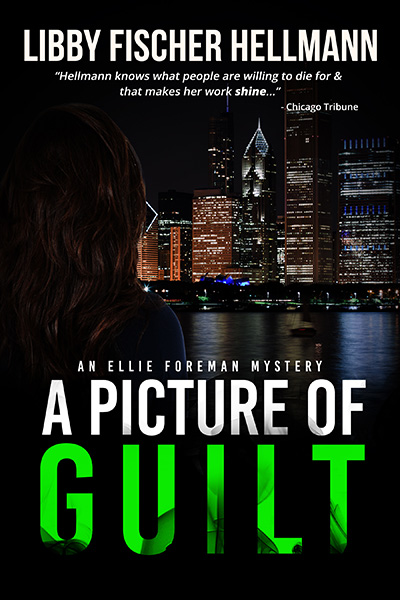 Series: The Ellie Foreman Series #2
Series: The Ellie Foreman Series #2Release Date: 2003
Genre: Mystery Fiction
Buy the Book:
My books are still available wide, but you’ll find the best prices on my store, especially if you buy more than one novel. Check out the two and three book Bundles here:
Libby's Store
The big news story in Chicago is the murder trial of Johnny Santoro, a dock worker whose girlfriend has been killed.
Most Chicagoans are betting on a quick guilty verdict, but Ellie Foreman has doubts about his complicity—Santoro is strangely familiar to her. Checking back to the outtakes of a video project in progress while the murder took place, Ellie finds evidence that could save Santoro from a lifetime behind bars.
It seems the perfect alibi, but the tape is compromised by radio interference and Santoro goes to jail. Almost immediately, Ellie’s world begins to shift: a suspicious vehicle follows her, the Chicago mob shows up, and the FBI wants to question her. She doesn’t have answers, but she has questions of her own about the radio transmissions.
Everything indicates that someone wants something from her, something bigger than the Santoro case. If only she could figure out what it is…
Reviews:
Smart and exciting… Hellmann knows what people are willing to die for and that knowledge makes her work shine.
—Dick Adler, Chicago Tribune
Hellmann owes a debt to fellow Chicagoans Sara Paretsky (complex plotting) and Barbara D’Amato (excellent research) – but she’s the brash young thing making this formula new again. I can’t wait for the next book.
—Robin Agnew, Aunt Agatha's
Hellmann has surpassed herself. Well-crafted, intense and exciting, right up to the last page… a must read.
—Midwest Book Review
This sequel to An Eye For Murder has it all – action, excitement, increasing tension – with the usual family complications.
—Library Journal
Also in this series:
Excerpt:
Chapter One
The raft plunged straight down and slammed into a wall of water. It flew up at a ninety-degree angle, propelling me up and out into the river. The rapids spun me around and threw me from side to side, burying me under a blanket of waves. I tried to right myself so I could rise to the surface, but I couldn’t tell which way was up. My lungs were on fire; my eyesight grew dim. Then a powerful force shoved me up, and I broke the surface, gasping for air.
Feet up, legs straight. That’s what the guide said. I tried to stretch my legs out, but a fresh torrent wrenched me under. I tumbled over like a flimsy rag doll. Then, as if taunting me with the promise of release, the river raised me up again. Two giant boulders loomed ahead. I gulped down air and squeezed my eyes shut, certain my last sensation on earth would be the excruciating pain of bone splintering against rock.
When I opened my eyes, the boulders were behind me. A surge of foam and spray had pushed me through the narrow channel between them. Above the roar of the rapids, I heard screams. I twisted around. Rachel! Twenty yards away, my thirteen year old’s yellow helmet bobbed in the churning waves.
My stomach clenched. I lunged and thrashed my arms, trying to swim to her, but the rapids carried me in the opposite direction. Just before I went under, I saw the guide throw her a lifeline. It landed short. When I came up, she was gone.
The river carried me another quarter mile. Then, as if underscoring its absolute control, it quieted. A hush descended. Tiny bubbles eddied across the surface. Gentle waves rippled peacefully. Hot sun struck my face.
I didn’t care. Rachel was gone. I wanted to cry, but the tears wouldn’t come. I wanted to scream, but the sound died in my throat. I stopped struggling. The water had won.
“I should have known when they said the river was kicking butt.” I drained my third glass of wine.
“It was up two feet from the big storm the other day,” Rachel added. She stirred her coke with her swizzle stick.
“But you survived,” Abdul, our dinner companion, said to Rachel.
Her blonde curls framed her face like a soft golden cloud. They bounced as she nodded. “Another raft picked me up.”
Rachel inherited her coloring from her father, but we share the same gray eyes and feisty ways. I pushed a strand of thick, black hair behind my ears, thinking how close I’d come to never seeing those curls again.
“The guide said you weren’t in any real danger, with the life preservers and helmets,” David said.
I glared. “What did you expect him to say?”
We were finishing cocktails in the main dining room at the Greenbrier. Nestled in the backwoods of West Virginia, the resort is one of the plushest in the world. With its graceful columns, sculpted gardens, and ante-bellum buildings, it fairly drips Southern gentility.
Which is why it sounded like a perfect idea when David asked us to meet him there for the Labor Day weekend. It would be a grand finale to summer; an elegant start to fall. It was also a chance for the three of us to spend time together, since Rachel and I live in Chicago. To bond, in that trying-each-other-out-as-family kind of way. I’d even started to look forward to the trip, imagining myself sipping mint juleps on the veranda in a frothy summer frock. Of course, I don’t have a frothy, mint-julep-sipping frock, but my friend Susan let me borrow hers. Susan has a dress for everything.
“Another glass of wine?” Abdul asked.
“I believe I will.”
“Ellie,” David cut in. “Haven’t you had enough?”
“Not yet.”
Abdul Al Hamarani had appeared at exactly the right time, like a fairy-tale genie magically released from his bottle. He was buying film inside the rafting company’s small office as Rachel and I stumbled inside after our experience.
“We should never have left the Greenbrier,” I’d muttered, collapsing on a chair.
He turned around. Wearing khakis with sharp creases, a pressed shirt, and a safari vest, he looked like he’d stepped out of a J. Peterman catalog. “You are staying at the Greenbrier?”
I nodded.
“I am staying there as well.” He was round-faced, with dark hair slicked back from a widow’s peak, he had wide, lively eyes. Pocketing his roll of film, he introduced himself and after David joined us and settled up with the guide, insisted we drive back together in his rented Mercedes. David started to decline, but after our ordeal, I wasn’t eager for the bumpy ride in the van we’d come in. We accepted Abdul’s offer.
During the trip we learned he was a Saudi petrochemical sheik and distant relative of the royal family. He’d come in a few days in advance of an annual energy conference, one of those international global-policy making forums the Greenbrier is famous for hosting.
“I like to take pictures.” Abdul explained and pointed to a canvas bag that had been slung on his shoulder. “Even your harshest summer is a relief from what I’m used to.”
We continued getting acquainted over dinner.
“I beg your pardon, Ellie.” He had a slight British accent. “But given your—your attitude, why did you embark on this rafting adventure to begin with?” He’d changed into a Savile Row suit for dinner, but the softness around his belly above the belt said he’d dined at some of the best restaurants in the world.
“David suggested it.” In truth, I’d been looking forward to a lazy day on the river, the hot sun beating down, the smell of laurel perfuming the air. I’d been warned it was too late for the delicate pink and white blossoms, though there might be some white rhododendron—a first cousin—still in bloom. As the state flower of West Virginia, it grows in wild profusion at the side of the road, in ravines, and on mountains. Even the pat of butter on our plates was sculpted into the flower.
“Besides us, there were four teenagers. All of us first-timers.” The waiter set a fresh glass of wine down in front of me. “Everything was fine at the beginning. The first rapid was only a Two. Nothing to worry about. But then we got to the Keeneys. They’re the most powerful stretch of rapids on that part of the river.”
I looked from Abdul to David. I was aware I was reworking and revising, turning the experience into a story. As if somehow that could blunt the terror that had welled up in me. But hey—I’m a filmmaker. I tell stories for a living.
“So we hit the Keeneys, which usually are a Four, but because of the rains the other day, were closer to a Five. Apparently, when we hit the first patch, the kids got spooked and forgot to stroke. Big mistake.” I rolled my eyes, and then clutched the arms of my chair. The room was starting to spin.
“Yeah.” Rachel said. “Our guide kept telling us we had to keep stroking. All the way through the white water.”
“If you stop, you lose control and balance, and you’re at the mercy of the water.” I took a sip of wine. “That’s what happened.”
Abdul patted his mustache and carefully trimmed goatee. A band of gold around his wrist glinted in the candlelight. “Yet you proceeded down the rest of the river without incident?”
David cleared his throat.
I looked away. “Actually, I told them they would either have to get a helicopter in to pick me up or I would be hiking back. And since there weren’t any helicopters handy—”
“And you’re afraid to fly…” Rachel added.
I shot her a look. “You hiked back with me.”
“I didn’t want you to be alone.” She swirled the coke in her glass. The corners of her mouth twitched with silent laughter.
I settled back in my chair. The room was definitely starting to spin. I propped my elbows on the table. “One of the guides took us back. We climbed a fifty-foot cliff, then hiked five miles through the woods. That was the nicest part of the trip.”
“Did you pass the abandoned railway and coal mines?” Abdul asked.
I raised an eyebrow. “How did you know?”
He thumbed his mustache. “I have been exploring the area myself.”
“Of course. You said that.” I looked at David and saw just the slightest shake of his head.
Abdul extracted a Gauloise from his pack and struck a match. Waving out the flame, he looked for an ashtray but there was none. He casually dropped the spent match on the tablecloth. Our waiter, hovering nearby, promptly supplied an ashtray and whisked the match away, not even bothering to mention we were seated in the room’s non-smoking section.
Abdul didn’t seem to notice, either, and launched into a discussion with David about the Russian oil market. As director of foreign currency trading for a Philadelphia bank, David keeps current on issues involving global finance. After their initial friction, they’d seemed to warm to each other.
I stared at the spot where Abdul dropped the match. A tiny smudge of gray marred the white damask tablecloth. I guess if you’re related to the Saudi royal family, you can do things like that. After a moment I decided the smudge wasn’t really jumping from one spot to another. I tried to focus on the men’s conversation, but heard only snatches of words, soft music, and the clink of silver on china.
I looked around. Ensconced in gilt-edged frames, a gentleman in a powdered wig and a lady in a low-cut gown gazed back at me. Did these stern representations of Southern society somehow sense my growing discomfort? After three days of rich food, soft accents, and scotch sprays, I was beginning to feel overwhelmed. And that was before the river.
A curl of smoke rose from Abdul’s cigarette, drifting into a haze above his head.
I picked up a roll and buttered it, thinking how cruel it was to smash a tiny yellow flower with my butter-knife. Who made those things anyway? Elves?
“So.” I interrupted around a mouthful of bread. “You’re here for an energy conference?”
Abdul looked over. “That’s correct.”
“Yeah? So what do you think? Have you decided what the government is gonna to do for you next year?” I swallowed clumsily.
Irritation flashed in David’s eyes. Rachel looked away.
“Don’t look at me that way, David. Everybody knows the oil industry’s in bed with the government. And—” I spread my hands. “What better place to be seduced? I mean, here we are in the lap of luxury in the poorest state in the country. And why is it so poor, you ask? Because all the coal that was so abundant here was stolen by ‘certain interests’ while our government looked the other way.”
“Ellie, that’s enough.”
“That’s why those coal mines are abandoned, you know.” I wagged a finger. “They were exploited by rich and powerful capitalishhts who didn’t care what happened to the land after they raped it. And now they’re shhtarting all over again with timber.” I nodded in what I hoped was a sage manner. “Logging.”
Abdul’s mustache and goatee seemed to blur together.
“So you see, it’s entirely fitting your meeting’s at the Greenbrier.” I went on. “Hey. I got an idea. Why don’t we make a commercial? ‘The Greenbrier—where the government goes to get grafted.'” I looked from Abdul to David. “Has a ring to it, don’cha think?”
Abdul inhaled deeply, the embers of his cigarette glowing orange. David avoided my eyes.
“You have passionate convictions, Ellie,” Abdul said. “But you give me too much credit. I am just an observer, not a player in your politics.” He picked up the menu. “Perhaps we should order our dinner.”
After dinner Rachel headed to the bowling alley, where the kids at the resort hung out. David and I went to our suite: two large bedrooms and a lavishly decorated living room with a wrap-around porch outside.
David loosened his tie and disappeared into the bedroom. I sprawled on the living room couch. He came back out, minus his jacket, and sat on the other end. I made no move toward him, which, even through my alcoholic haze, surprised me. Usually, I can’t wait to get him alone. He gazed at me expectantly, his deep blue eyes wide. Soft lamplight glinted off his thick, white hair. Taut muscles bulged through his short-sleeved shirt. Though he was well into his fifties, he could hold his own with any Generation Xer. The silence between us grew. Then,
“Why do you always do that?” he said.
“What?” I said, after a beat. “Get drunk?”
He shook his head. “Why do you always make sure everyone knows you’re an outsider?”
“I am.”
“No more than Abdul.”
“Sure. And I just happen to have twenty oil wells in my pocket, too.” I sniffed. “My god, David, look at this place. The garbage alone could feed an entire West Virginia hamlet. And Abdul flicks his burnt match on the table like we’re in some greasy spoon. I know some people are used to being waited on. But that just isn’t me.” I slouched. “Of course, nearly drowning today didn’t help much.”
David took a breath. “Ellie, I wanted us to enjoy our time together. Frightening you or Rachel was the last thing I ever intended to do.”
That was probably as close as he would come to admitting that we had brushed up against the void that afternoon. “But as far as belonging…” he sighed. “People spend their whole lives not knowing where they belong. Can’t you just file this away as an ‘experience’?”
Maybe I was still too worked up. Or drunk. But his tone rankled. “Sorry. I forgot who I was dealing with. The guy who’ll do anything to belong. Who needs acceptance from everyone.”
He knelt in front of me. “Not from everyone,” he said quietly. “Just you.”
Something inside me came unhinged, and a weight in my chest that I hadn’t known was there began to melt. He drew me into his arms.
Chapter Two
“Ellie?”
Abdul headed over to my table carrying a plate loaded with French toast, sausage, and grits. Draper’s Café was done up in so many bright pinks and greens I felt like I a prisoner inside the petals of a giant laurel. I folded my newspaper. “Good morning.”
“Where’s David?”
“Showering. He was working out.”
Abdul’s mound of food almost obscured the pattern of laurels bordering his plate. He smiled ruefully as he set it down. “I should follow his example. But I am not as disciplined.”
I smiled too, remembering our very undisciplined activities the night before. As if reading my mind, Abdul’s grin widened. Mine faded. I felt like I’d been hit by a bus from yesterday, and I was nursing a headache the size of Montana. “Abdul, I want to apologize for my behavior last night at dinner.”
He sat down. “Think nothing of it.”
“I was ugly.”
“You were refreshing.”
“You are charming.”
He pulled out a chair and sat down. Unfolding a pink linen napkin, he placed it on his lap, then reached for the syrup, drenching not only the French toast, but the sausages and the grits in a sea of maple. My fruit cup looked Spartan in comparison.
He speared his sausage and swallowed it in two bites. If he was Muslim, he wasn’t all that devout. “You are from Chicago, David tells me?”
“Born and bred.” I braced myself, waiting for the inevitable comment about the “windy city”, or “my kind of town”, or other inanity non-Chicagoans feel compelled to express. As if we run around all day humming Sinatra, thrilled to live in a place with razzmatazz.
But all Abdul said was, “I am very impressed with your— your—”
“David.”
“Yes. He has keen observations on the relationship between currencies and markets.”
As much as I try, I can’t summon up much enthusiasm for currency trading. Admittedly, I don’t really understand it, and I keep wondering what I’m supposed to understand. As David explains it, it’s a service that banks provide to their customers. The bank doesn’t want to lose money, but they’re not in it to make a killing. Except for the occasional scandal, which often turns out the result of poor judgment not deceit, currency trading just isn’t very sexy. Which is fine by me. My ex-husband played the market. Badly. I have the debts to prove it.
But Abdul was clearly a man of wealth—and a member of the Saudi royal family. I should be polite. “I don’t understand currency trading very well, but I imagine you need dollars because—well, why do you need dollars?”
A waitress in green and pink filled our coffee cups. He waited until she glided away. “You’re a curious woman.”
I shrugged.
He studied me closely, as if registering every detail of my appearance. I found it unnerving. I’m usually the observer.
“It is not that complex.” He lowered his fork. “The price of oil is quoted in US dollars, and most of my business is transacted that way. I use the proceeds to purchase currencies for my other investments.”
“And what would those be?”
He hesitated. “I am always looking for new ideas and technologies to bring back to my people. For example, I have invested in a genetic engineering company which is experimenting with drought resistant seeds. Also an Internet search engine that teaches children how to retrieve information more easily.”
“Really?”
“It may be your David Linden and I will have more to discuss.” He laughed, scraping up a mouthful of grits. “But enough business. You seem more—how do I say it—anchored this morning.”
“Nicely put.” I smiled. “The rafting… well, it isn’t anything I plan to do again.”
He laughed again and went back to his food. When he’d finished, he pulled out a copy of the Journal. “You don’t mind?” He motioned to the paper.
I held up the Chicago Tribune I’d bought earlier, and we settled back to read in companionable silence. I’d been surprised to find a Chicago paper in the mountains of West Virginia. But then, this was the Greenbrier. They probably had their own printing press in the back.
As I scanned the paper, a story on page nine caught my eye. A murder trial was about to get underway at criminal court downtown. The accused, a man named Johnnie Santoro, allegedly beat up and then shot his girlfriend at Calumet Park on the Southeast side. He was pleading not guilty, but according to the article, there was a wealth of incriminating evidence. The last weeks of summer are usually the “dog days” in terms of hard news, so in the absence of anything more newsworthy, the case had been heavily covered by the media, the local stations promising all the legal maneuverings and high drama of the OJ trial. I’d paid scant attention until now, figuring that whatever local TV wants me to watch is exactly what I should avoid.
Today, though, there was a grainy newspaper picture of Santoro in the paper. He was twenty-six, the article said, but he looked older. His eyes were hooded, and his hair was cut close to his skull. He was looking off-camera, but his eyebrows were so overgrown and bushy they met over his nose, which gave gave him a simian look.
I stared at the picture and felt my skin grow clammy. I reached for a glass of water.
“Something is wrong, Ellie?” Abdul asked.
I gulped down a swig, then held up the paper. “This man who’s on trial? He… looks familiar. I think I know him.”
His eyebrows shot up.
“Good morning, troops.” Strong hands squeezed my shoulders. I glanced up. David leaned over and kissed my cheek.
“It’s the face,” I said to Abdul. “I’ve seen it before.”
David pulled out a chair. “What did I miss?”
I passed him the paper. “Look at this.”
“What am I looking at?”
“The man in the picture. Who’s on trial for murder.”
David studied the article.
“I think I know him,” I said. “But I don’t know how.”
I felt Abdul’s eyes on me.
“Guy beats up his girlfriend and shoots her to death.” David handed me back the paper. “What a nice person for you to know.”
